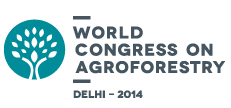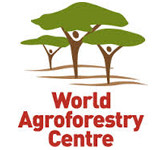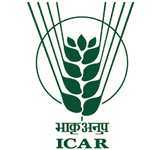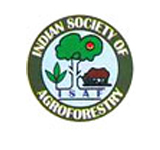
Vigyan Bhavan & Kempinski Ambience
10 - 14 February 2014
Delhi, India
blog

Philip Dobie delivering a truly inspirational and philosophical talk about the way forward for agricultural science to create impact. Photo by Sinead Mowlds (co-author).
Research and Development (R+D) has been around for a long time; every serious big business has an R+D unit. Looking at the context of agricultural research, there was a slight but significant change in the wording lately: R+D became R4D—Research FOR Development. Suddenly, scientists are expected to not only develop the solutions, but also apply them to attain development. To meet this huge challenge we need nothing less than a fundamental change in paradigm: R4D has to become R-IN-D, meaning Research in Development.
From top-down to bottom-up
Extension was essentially born as a top-down approach; Scientists were expected to develop solutions and put them on the shelf. Extension workers would buy the solutions and apply them in the farmers’ context. Change has led scientists to increasingly opt for the bottom-up approach. They apply concepts like Farmers-to-Farmers Extension (FFE) and Volunteer Farmers Training (VFT) among others. All these terms can be categorized as types of Rural Advisory Service (RAS). Quite a promising approach if you ask me. Even more so as there is a Global Forum for Rural Advisory Service (GFRAS), which acts as an umbrella for RAS approaches around the world.
However, many scientists are still opting for the top-down approach; recently for example, the First International Conference on Global Food Security was held in the Netherlands. Before I went there, I asked myself: isn’t food security essentially a local problem? At the conference itself I asked myself why scientists were spending huge amounts of resources to develop complicated models in order to calculate worldwide yield gaps for different crops, only to conclude with statements like “OK, well, our model works well or doesn’t work at all under these and those circumstances”? Is it because they are afraid of going out to that bumpy real world to do something with their proper hands that truly has impact?
The fact is that food security is a local problem, and only bringing together multiple local solutions can solve the problem of “global” food security. Maybe they will call it “First International Conference on Local Food Security” next time.
From R4D to R-IN-D
So here I was at session 6.3 of the World Congress on Agroforestry 2014 entitled “The science of scaling up and the trajectory beyond subsistence”. Quite an ambitious title, but it hits the spot! After Ann Degrande and Evelyne Kiptot had set the scene with inspiring case-studies, the chair himself took over. Steve Franzel delivered a remarkable talk to raise the quality level of the session even more.
The title of this blog was taken from the chair’s speech; let me repeat: “It’s not about best practice, but best fit”, indicating that best practices are always site-specific.
It is only when you have the general picture (through meta-analyses and the like) that you can break it down to the local level again taking into account the very circumstances you are dealing with (in various dimensions). Today, many case studies are available. The trick is to stir the pot and cook a new recipe from it that brings us forward.
But that was just the beginning. One of the most inspiring, pleasing, mind-soothing yet challenging and highly philosophical speeches I have ever heard at a conference was the one given by Philip Dobie. He drew a mind-blowing picture of Research IN Development, which would enable us to make science a more rapid learning process by shortening feedback loops as inherent part of innovation cycles. In order to get there, we need to take two main steps:
Firstly, mindsets of scientists and donors have to change in the same way as the wording (from R+D to R4D). Donors funding R4D projects expect you to “have impact” in your research. This impact does not come with a publication in a journal with a high impact factor like Science or Nature. After all, paper remains paper. No, the true impact is in many cases still missing. Farming systems research is taking a first step into the right direction, making methodologies more multi-dimensional thus holistic. Systems are complex and therefore unpredictable. If agricultural systems are so, the development we want them to undergo is at least as complex!
Secondly, we need to design research projects to be much more of a learning process in order to shorten these feedback loops! We have to design our projects to be more complex, integrating social and bio-physical science under the same roof in new forms of institutions. For that, Philip Dobie says, we have to take the courage to say “No” to our donors sometimes. That is, if they have not yet understood the direction research needs to go to truly have impact.
After all, impact is what donors want. It is also the desire of farmers, and hopefully the preference of researchers working in R4D.
By Christian Andres
Researcher in Tropical Production Systems
FiBL (Frick, Switzerland)
—
Follow the Congress on Twitter #WCA2014 for live updates!





